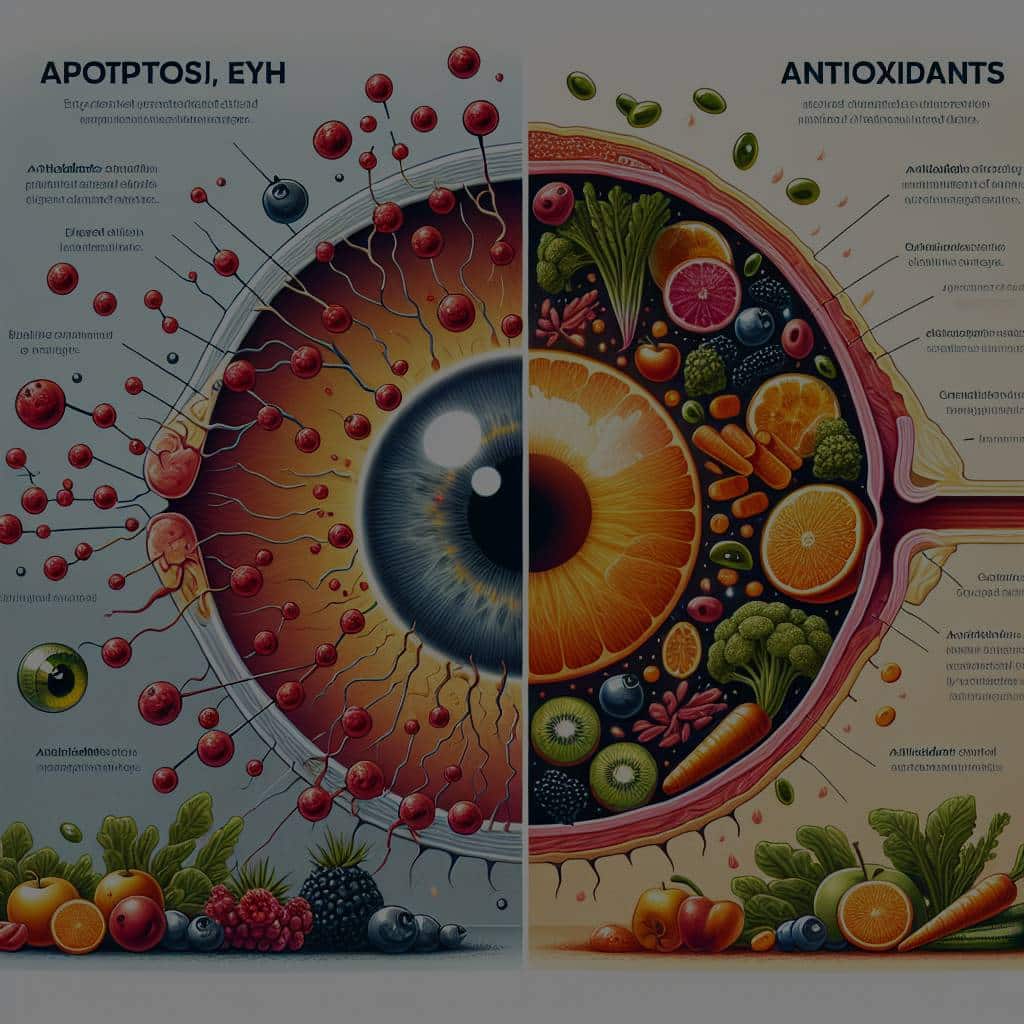How Can Antioxidant-Rich Diets Prevent Age-Related Eye Diseases?

The human eye is a marvel of nature and a testament to the complexity of our biological systems. It allows us to see the world in all its vivid colors and intricate details. But just like any other organ in our body, our eyes are susceptible to the effects of aging. Age-related macular degeneration (AMD) is a common eye disease that affects millions of people worldwide. This articles explores the role of antioxidants found in certain vitamins in the prevention of age-related eye diseases, notably AMD. We’ll delve into the science behind these beneficial compounds, look at the evidence offered by renowned databases like Crossref, PubMed, and Google Scholar, and delve into various clinical trials related to this topic.
Understanding Age-Related Macular Degeneration
Age-related macular degeneration, commonly referred to as AMD, is a health concern primarily affecting individuals over the age of 60. It is a leading cause of vision loss in older adults, triggered by the deterioration of the macula, the central portion of the retina responsible for detailed and color vision.
Also to read : How Can Speech Recognition Technology Assist Patients Recovering from a Stroke?
Several risk factors contribute to the development of AMD, including age, genetics, smoking, obesity, and diet. The relation of these factors with the onset and progression of AMD has been studied extensively, with countless scholarly articles and studies available on databases like PubMed and Google Scholar.
The Role of Antioxidants: Lutein and Zeaxanthin
A growing body of research suggests that a diet rich in antioxidants, particularly the carotenoids lutein and zeaxanthin, can help prevent age-related eye diseases. Found in various fruits and vegetables, these powerful antioxidants are believed to play a crucial role in maintaining eye health.
Have you seen this : What Personal Protective Measures Can Reduce Lyme Disease Risk in Endemic Areas?
Lutein and zeaxanthin, as antioxidants, work by neutralizing harmful free radicals in the body, which can cause damage to cells, including those in the eyes. They are also known to improve the density of the macular pigment, an area of the retina where the vision cells are densely packed. Greater macular pigment density is associated with lower risk of AMD.
Notably, an abundance of clinical trials and scholarly articles on CrossRef, PubMed, and Google Scholar attest to the protective effects of these antioxidants against AMD.
Reviewing the Evidence: Clinical Trials and Studies
Evidence regarding the protective role of lutein and zeaxanthin in preventing AMD is well-documented in various clinical trials and studies. Let’s delve into some of this research.
One landmark study often referred to is the Age-Related Eye Disease Study 2 (AREDS2), funded by the National Eye Institute. The study found that adding lutein and zeaxanthin to a daily multivitamin slowed the progression of AMD in people who were at high risk for the disease. This study is often cited in scholarly articles and can be found on databases like PubMed and Google Scholar.
Further, a meta-analysis of eight randomized controlled trials, available on CrossRef, showed that dietary supplementation with lutein and zeaxanthin improved visual performance and may delay the onset of AMD.
Incorporating Antioxidants into Your Diet
So, how can you incorporate these beneficial antioxidants into your diet to safeguard your eye health? Lutein and zeaxanthin are found in a variety of foods. Leafy green vegetables like spinach, kale, and collard greens are excellent sources. Other vegetables such as broccoli, zucchini, and peas also contain these carotenoids. Furthermore, egg yolks are a potent source of lutein and zeaxanthin.
While the consumption of lutein and zeaxanthin through a balanced diet is recommended, in some cases, especially for those at high risk of AMD, doctors may recommend supplements. It’s important to consult with a healthcare professional before starting any new supplement regimen.
With an aging population, age-related eye diseases pose a significant health risk. However, research suggests that we have a powerful tool at our disposal to prevent and manage these diseases — the food we eat. Incorporating antioxidant-rich foods into our diets could help maintain our eye health and keep the world in view for many years to come.
The Connection Between Antioxidants and Eye Health
The human eye is a complex organ, constantly exposed to environmental stressors like sunlight, dust, and smoke. All of these can generate oxidative stress, which can damage cells in the eyes and contribute to age-related eye diseases such as macular degeneration. Oxidative stress is caused by an imbalance between the production of damaging free radicals and the body’s ability to counteract or detoxify their harmful effects.
Antioxidants, including lutein and zeaxanthin, are substances that can prevent or slow down this damage from oxidative stress. They work by neutralizing the harmful free radicals. In the context of eye health, these antioxidants are crucial as they are located in high quantities in the macula. They help to protect and maintain healthy cells within the eye.
According to numerous clinical trials noted on CrossRef and Google Scholar, as well as articles on PubMed, these antioxidants, specifically lutein and zeaxanthin, have been found to play a significant role in preventing age-related macular degeneration. Research also suggests they may be effective against other eye diseases, such as cataracts and dry eye syndrome. They may also help improve visual performance by reducing glare and enhancing contrast sensitivity.
Conclusion: The Significance of Antioxidant-Rich Diets for Protecting Eye Health
In conclusion, age-related eye diseases, including macular degeneration, pose a serious threat to our vision, particularly in older adults. Research indicates that these conditions are influenced not just by age and genetics, but also by lifestyle factors like diet.
Antioxidant-rich diets, especially those high in lutein and zeaxanthin, have been shown to protect against these diseases. These potent antioxidants, found in a variety of foods such as leafy green vegetables, broccoli, zucchini, peas, and egg yolks, can help neutralize harmful free radicals and prevent damage to the eyes.
The evidence collected from various clinical trials available on databases like Google Scholar, PubMed, and CrossRef, notably the AREDS2 study, testifies to the beneficial effects of these antioxidants. However, it’s important to remember that while a balanced diet rich in these antioxidants can contribute significantly to maintaining eye health, it should not replace regular check-ups with an eye care specialist.
The beauty of the world is best appreciated with clear, healthy vision. By incorporating antioxidant-rich foods into our diets, we could help maintain our eye health and keep the world in view for many years to come. Remember, a healthy diet is not just good for your body; it’s good for your eyes too.
